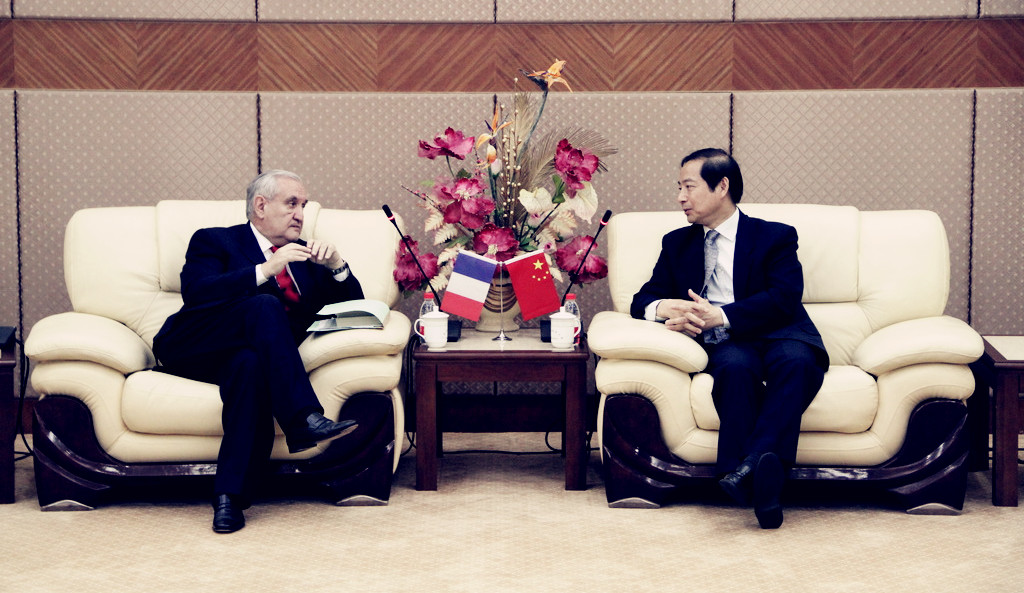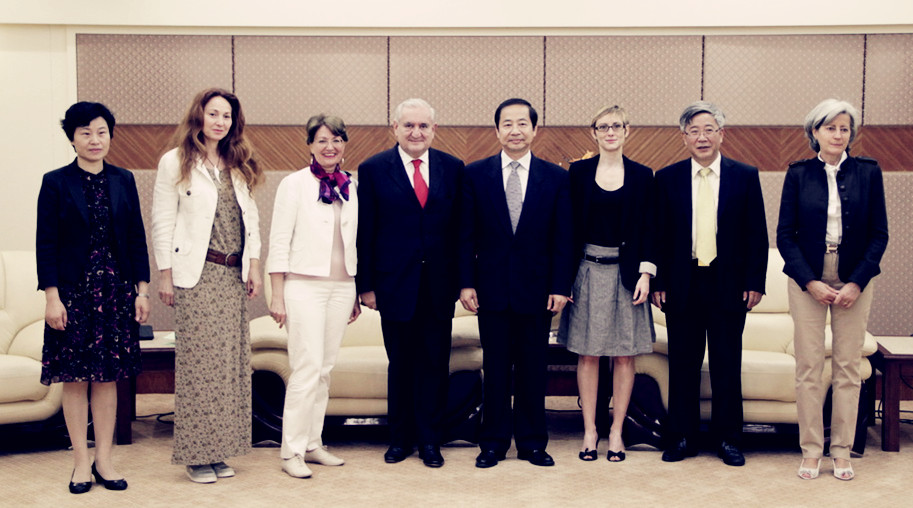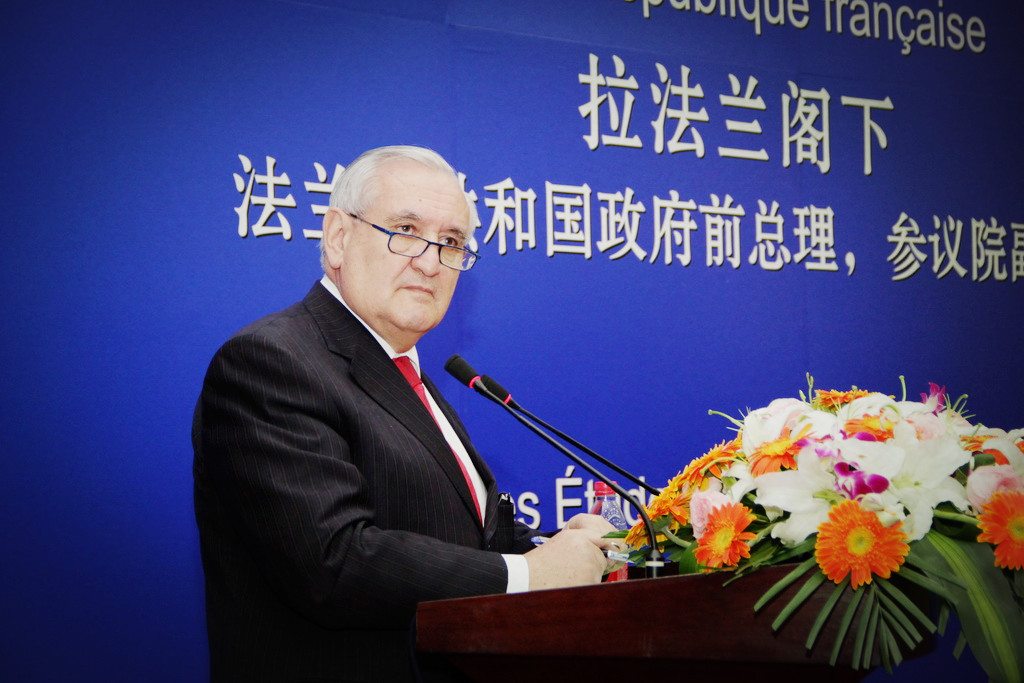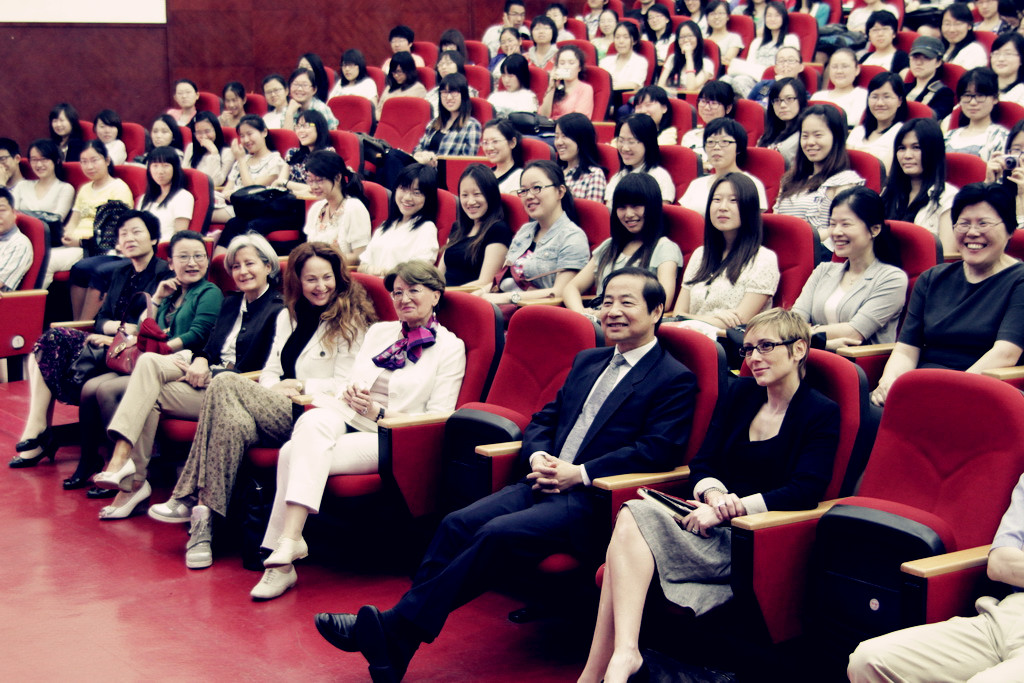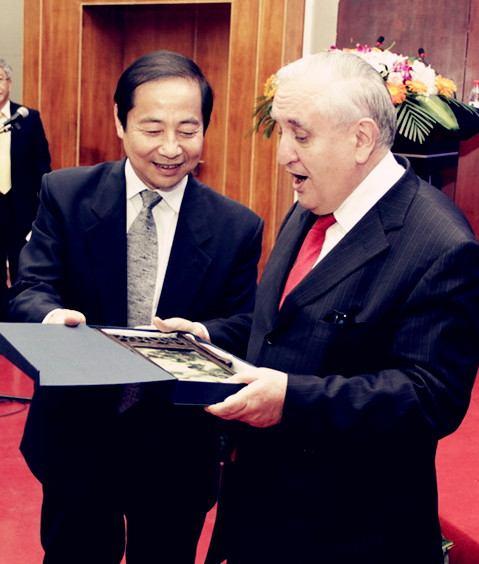May 18, 2012 | By Grace Leung
On May 18, 2012, Mr. Jean-Pierre Raffarin, Vice President of the French Senate and Former Prime Minister, visited SISU’s Songjiang campus and delivered a keynote speech titled “Ouverture et solidarité pour le monde nouveau (Welcoming the New World with Openness and Solidarity)”, which drew an enthusiastic response from SISU faculty and students attending the event.
Mr. Raffarin said that the world today is undergoing a globalization process that brings countries ever closer together. In economic crisis, therefore, protectionism will only make the situation worse, and countries cannot get rid of all the negative impacts of the crisis unless they follow the principle of openness and solidarity.
He analyzed the trends of Sino-European, German-French and Sino-French relations. Recalling his visits to China over the past decades, he said that he had witnessed China’s rapid economic rise and acknowledged its important role in the international arena. In dealing with the triple crisis of slow growth, currency devaluation and heavy debt, Germany and France, the two core countries of the EU, must hold intense consultations to seek a balance between tightening fiscal policy and boosting growth. They must also work together to lead the EU in diversified and multi-level cooperation with China, as China is a great power, the world’s economic engine and a member of many international organizations. The three countries have already formed a solid triangle system, with different political and economic points of focus. Cultural exchange between China and Europe is also an important area requiring openness and solidarity. Mr. Raffarin made a vivid and pithy comparison between European dialectics and the Chinese philosophical system centered on the dynamic balance of yin and yang, and recognized the merit of Chinese way of thinking. He encouraged all students present to use their excellent language skills to assimilate the essence of both Chinese and European cultural heritage and facilitate cultural communication. He hoped that they could play a significant role in pushing forward bilateral exchange not only in the economic sphere, but also in cultural and other areas.
In looking to the future of Sino-French relations, Mr. Raffarin said that the friendly ties between the two countries have always been based on mutual trust. The two countries should continue to follow the principle of mutual respect and joint consultation, and continuously advance bilateral relations so as to maintain long-term friendship. He believed that the future of Sino-French relations rests with the younger generation, and encouraged young people in both countries to increase their interaction, mutual visits and cultural communication so as to enhance the relationship between the two countries.
In conclusion, Mr. Raffarin pointed out that, in today’s multi-polar world, China and France, and all Europe – in fact, all countries of the world should rise to challenges with openness and solidarity, and enhance cultural communication and respect cultural diversity while pushing forward sustainable economic development.
